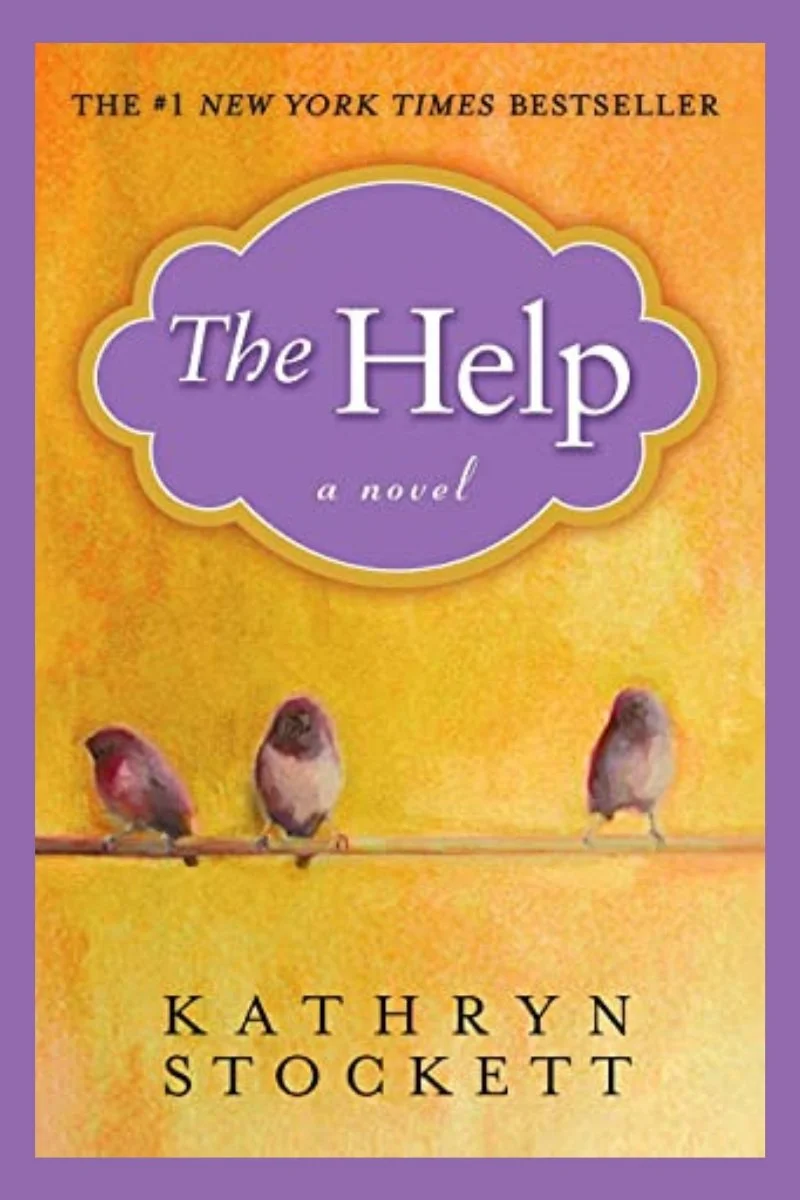The Help – Kathryn Stockett
Expectation: Cringe-level disappointment that I found the film so entertaining given the hindsight view of its problems.
Reality: Deeper characterization and discussion of the socio-political realities of the time period made this an excellent, if still flawed, novel.
My Take:
More than a decade has passed since the publication of Kathryn Stockett’s debut novel and the premier of its blockbuster film adaptation, and in that time conversation around the book and film have changed drastically.
Stockett was sued by the former maid of her brother claiming she used her likeness and experiences as inspiration, and Viola Davis said she regretted starring in the film due to its white saviorism and marginalization of the Black characters.
I took these hindsight views into account and went into my reading of “The Help,” with bias and general gall that Stockett thought this was the story she should own. After finishing the novel, which I found incredibly entertaining and emotional, my perception has changed.
First, the novel has its problems and much of the criticism is fair. There is a level of cringe knowing a white person manifested the slurs and dialect, but one thought I couldn’t shake while listening is that this is essentially historical fiction about racial injustice and racial inequities by a white person for white people.
Does that absolve it of criticism? Absolutely not. But if this is the only literature a white person is willing to read about the experiences of Black people in the southern United States during Civil Rights, it will certainly give them context and insight about the long-term repercussions of racism — and hopefully change minds.
It’s also worth noting that while the plot of the novel and film are relatively similar, there are significant differences between the two.
First, there is far more humanity in the novel. We get more backstory and character development for Aibileen and Minny, and many other maids, which was lacking in the film. Is it a 50/50 split between the Black and white characters? Hard to say, but I felt that Skeeter, while still the main character, isn’t the sole driver of the plot or emotion.
Second, the novel doesn’t shy away from the realities of life in the 1960s the film glossed over. Aibileen and Minny challenge Skeeter on her casual racism. They scoff at her lack of awareness of Jim Crow laws. In turn, we see how Skeeter’s thinking evolved and how she wrestled with doing right despite the risks to her and the maids collaborating with her. The film presents this much more as Skeeter being a driver, when in reality it was Aibileen.
For as entertaining and well-executed the film is, if we are to judge the totality of “The Help'' solely by its shortcomings, then we deny ourselves the strength and complexity of the source material. This book became a phenomenon for a reason — it’s good, and a story that is worth the read, or listen.
The audiobook was narrated by all-star cast of Jenna Lamia (Skeeter), Bahni Turpin (Aibileen), Octavia Spencer (Minny) and Cassandra Campbell (general narration). Each does a wonderful job of bringing the characters to life and helping me forget the actresses that portrayed them in the film (Spencer, aside). While the production was at times spotty (the volume of the voices varied and cuts clear), this is a great way to tackle the novel.
On a side note, while the film is stacked with amazing actresses, after experiencing Stockett’s characterization of them, I feel a few roles were miscast. Emma Stone is wonderful, but she is a far cry from the Skeeter presented in the text. I think Julia Garner would be a better pick if the movie were being cast today.
Additionally, Jessica Chastain had a breakthrough performance as Celia Foote, but her character was given a slightly different arc in the film versus the novel, which makes Chastain seem out of place. Jennifer Coolidge during her Legally Blonde era was who I pictured.
Rating (story): 5/5 stars
Rating (narration): 4/5 stars
Formats: Audiobook (library loan)
Dates read: September 23 – September 26, 2022
Multi-tasking: Good to go. I listened to this on a road trip with my husband, and it was a crowd-pleaser for both of us.





